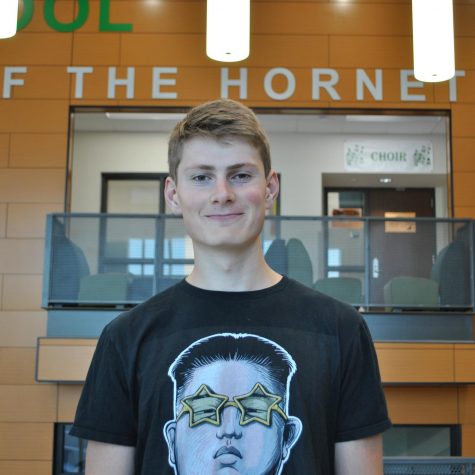“Barbarian Days” Surfs Through Author’s Childhood Memories
April 25, 2018
Barbarian Days by William Finnegan is an autobiography that tells the story of his lifelong passion for surfing. It is a New York Times bestseller and winner of the Pulitzer Prize. In the book, Finnegan presents to the reader the details of his unconventional surfing lifestyle, and how it shaped him to be the person he is today.
The author’s affinity for surfing began when he was 10 years old at San Onofre beach, a patch of beach surrounded by Marine Corps Base Camp Pendleton in Southern California. After leaving California, he spent his adolescent years in Honolulu, Hawaii as a haole (Hawaiian for white person) in a school where being white meant being a minority. Because he was a minority in Hawaii, Finnegan was bullied and got in plenty of fistfights during his middle school years. However, Finnegan found refuge from his hardships in surfing. He quickly became friends with local surfers who showed him the ropes of surfing on the island of Oahu.
From Hawaii, Finnegan embarked upon a peripatetic journey to discover the best waves in the world. During his adventure, Finnegan ventured to Australia, the South Pacific, South Africa, Southeast Asia, and Portugal. Seeking an idyllic life, he spent his days surfing, reading, and writing articles for surfing magazines. In his five years of travel, however, Finnegan came to question what he was doing. What exactly had he taken “vacation” from? It seems that during his years of travel, the author was not on vacation at all. “I had come here to learn, I figured, and not just a few things about some far-flung places and people. I wanted to learn new ways to be. I wanted to change, to feel less existentially alienated, to feel more at home in my skin, as they say, and in the world,” Finnegan wrote.
Most people picture surfing as a sport that takes place in a setting of warm and sunny weather, palm trees, and an overwhelming feeling of pure bliss. However, Finnegan points out that this widespread view of surfing is completely false. Some of the best waves come during winter swells when the ocean temperatures are in the forties. Finnegan and his companions experienced frequent brushes with death when they were held down by waves or become hypothermic in the ice cold sea. Such an experience occurred to Finnegan in early 2014 when he became trapped underwater while surfing in Oahu. “I didn’t panic, but I did run out of oxygen. That was when I had a very clear thought about Mollie (his daughter). Please. Let this not be my time. I am needed,” Finnegan wrote.
In Finnegan’s life, as seen in his autobiography, to surf or not to surf was never a decision. It was a constant in his otherwise unregimented and nomadic life. “I did not consider, even passingly, that I had a choice when it came to surfing. My enchantment [with surfing] would take me where it would,” he wrote. Finnegan’s surfing fixation often led him to make huge sacrifices in other aspects of his life. “When you surf, as I then understood it, you live and breathe waves. You always know what the surf is doing. You cut school, lose jobs, lose girlfriends, if it’s good,” he wrote.

